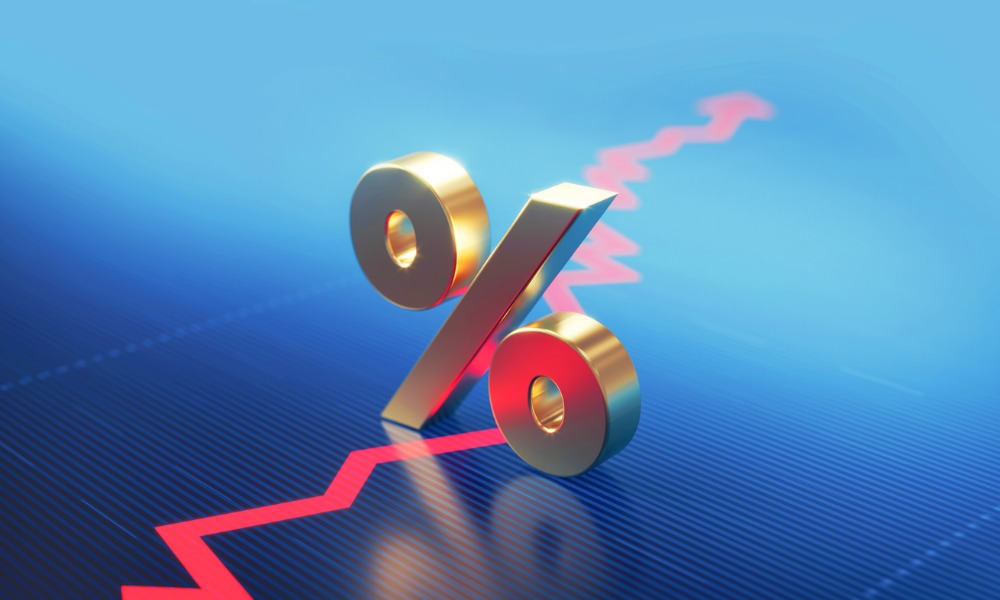Economist expects the rate increase to "add additional lead into the heels of the housing market"

US mortgage rates fell from record levels shortly after the Federal Reserve announced another huge interest rate hike.
Mortgage buyer Freddie Mac reported that the 30-year fixed-rate mortgage averaged 6.95% as of November 3, sliding from a record high of 7.08% a week ago. The 15-year fixed-rate mortgage dipped 7 basis points to 6.29%, and the 5-year Treasury-indexed hybrid adjustable-rate mortgage edged down one basis point to 5.95%.
The drop followed the Fed’s decision to raise its benchmark interest rate by another 75 basis points to cool demand and bring prices under control.
“Mortgage rates continue to hover around 7%, as the dynamics of a once-hot housing market have faded considerably,” said Sam Khater, Freddie Mac chief economist. “Unsure buyers navigating an unpredictable landscape keep demand declining while other potential buyers remain sidelined from an affordability standpoint. Yesterday’s interest rate hike by the Federal Reserve will certainly inject additional lead into the heels of the housing market.”
Read more: Tepid mortgage demand persists
Persistent volatility tied to the Fed’s monetary tightening policy has been tougher on the housing market than other sectors.
“In the interest-rate-sensitive sector of housing, that policy is working – the housing market is cooling from the red-hot pace of the past two years,” said First American deputy chief economist Odeta Kushi. “In other corners of the economy, especially the labor market, the Fed is not yet seeing the same swift pullback in demand.
“The unemployment rate remains low, while wage growth, especially in the service sector, remains high. Fed officials are concerned that high wage growth will lead to inflation becoming entrenched, feeding into a cycle of businesses and consumers expecting ever-higher prices.
“Household spending has started to show signs of weakness but remains strong, despite price increases on essentials like food. Real personal spending grew faster than personal income in September, indicating that households are drawing down savings to finance spending.”
Ruben Gonzalez, chief economist at Keller Williams, expects sales and price declines to continue into 2023.
“Most homeowners have mortgage rates that are half of the current 30-year rate, and as a result, listings have slowed along with sales,” Gonzales said. “First-time buyers still face the prospect of home prices which have risen 40% since 2019 and now mortgage rates over 7%.
“As the Fed continues to combat inflation, the housing market will continue to slow as one of the most interest rate-sensitive industries. Homeowners’ equity levels are high because of the rapid appreciation, and mortgage default rates remain near all-time lows as markets cool.”
“While the housing market is slowing, other corners of the economy have yet to follow suit,” Kushi added. “The Fed will likely be watching for sustained, data-driven signs of cooling in the labor market, and specifically wage growth before it eases the pace of rate hikes.”
“In the mortgage market, consumers who may otherwise be considering buying a home may choose to continue to hold onto their down payments, waiting to see if interest rates and/or home prices decline in the not-too-distant future,” said Michele Raneri, vice president of US research and consulting at TransUnion.
“For those consumers who do purchase a home, adjustable-rate mortgages may continue to be more popular among consumers seeking lower monthly payments in the short term. And consumers looking to tap into available home equity may continue to look towards HELOCs and HELOANs instead of refis.”


